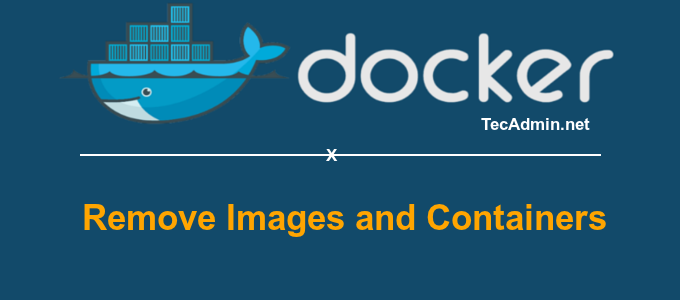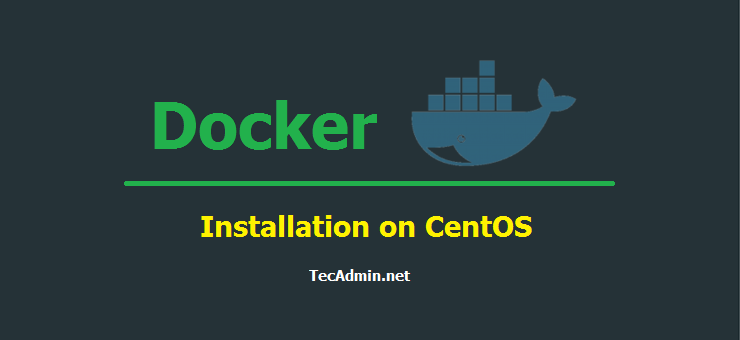In our previous tutorials you have learned about installation of Docker engine on CentOS/RHEL and Ubuntu operating system and pulled images from Docker hub. After that created containers with images. This tutorial will help you to export and import Docker images and move them between hosts. List Docker Images Fist list docker images on your system using below command. root@tecadmin:~# docker images REPOSITORY TAG IMAGE ID CREATED VIRTUAL SIZE centos latest 2933d50b9f77 11 days ago 196.6 MB ubuntu latest 36248ae4a9ac 11 days ago 188 MB Save or Archive Image Now use the following command to save image repository named ubuntu…
Author: Rahul
Docker containers have become an essential part of modern software development, streamlining the process of building, shipping, and running applications. In this article, we’ll explore how to export and import Docker containers, enabling you to move containers between systems and share them with other developers easily. This process is particularly useful for backing up containers, migrating them between hosts, or distributing pre-configured environments for consistent development and testing. Prerequisites To follow this tutorial, you’ll need the following: Docker installed on your system. You can download it from the official Docker website (https://www.docker.com/) if you haven’t already. Basic familiarity with Docker…
Docker is a popular containerization platform that allows you to package, deploy, and run applications in a container. It is a useful tool for developing and deploying applications, but over time, you may accumulate a large number of images, containers, and volumes that take up space on your system. In this article, we will go over how to remove Docker images, containers, and volumes to free up space and keep your system clean. How to stop and remove all docker containers In the following sections, we will go over how to remove Docker images, containers, and volumes using the appropriate…
Docker is container-based application framework, which wrap of a specific application with all its dependencies in a container. Docker containers can easily to ship to a remote location on start there without making entire application setup. This tutorial will help you to install and manage Docker on CentOS/RHEL 7/6 operating system. Step 1 – Verify Requirements For a standard installation, Docker required 64-bit operating system having Kernel >= 3.10 version. Older versions of Kernel have some missing requirements to run all features of Docker. uname -r 3.19.0-49-generic Also install the following packages on your system. sudo yum install -y yum-utils…
In our previous tutorial, you have learned about how to start or run command in background. Now this tutorial will help you to how to move running command in background. This is helpful, if you have started a command on terminal and that command is taking to much time. Now you want to move that in background, so that you can continue with other tasks. Move Running Command in Background For example you are taking a backup of large number of files, You have started command on terminal, But after mid of this task you think that this is taking…
eJabberd is a robust, scalable and extensible XMPP Server. eJabberd is written in Erlang programming language. All the eJabberd features are easily accessible from any mobile app or web applications. The use of web-sockets in eJabberd provides the ability to seamlessly send and receive messages while a browser tab is opened. Install eJabberd eJabberd packages are available under default system repositories. You just need to use run below commands to install eJabberd packages. This will also installed Erlang programming language packages. $ sudo apt-get install ejabberd Configure eJabberd For this installation we are using domain im.example.com in configuration. You may…
KDE Plasma provides a most beautiful desktop environment for Linux-Unix users. KDE development team is continuously enhancing the features. In order this they have announced the latest version of KDE Plasma 5.10. Plasma 5.10 Features A large number of feature improvements and new features has been applied in this release. Here are few below: Task Manager, the list of applications in the panel, has gained options for middle mouse click such as grouping and ungrouping applications. The size of the icon in vertical Task Managers is now configurable. Spring Loading in Folder View making drag and drop of files powerful…
WordPress is a free, open source a content-management system (CMS) and blogging tool based on PHP and MySQL. This tutorial will help you to install WordPress with Nginx on Ubuntu system. Step 1 – Install PHP & MySQL First of all, install PHP packages from Ondrej Apt repository on your system. Execute the following commands to install it. sudo apt-get install python-software-properties sudo add-apt-repository ppa:ondrej/php sudo apt-get update sudo apt-get install php7.3 php7.3-fpm mysql-server php7.3-mysql Step 2 – Install Nginx Then install Nginx packages from the Nginx official Apt repository. curl http://nginx.org/keys/nginx_signing.key | apt-key add – echo “deb-src http://nginx.org/packages/mainline/ubuntu/ `lsb_release…
You may need to create separate account for every user want to connect this system. For adding new users in system there are two commands available in your system, useradd and adduser. adduser command is the enhanced version of useradd command. adduser command uses useradd command in backend. This tutorial will help you to add and delete user on CentOS, RHEL, Fedora and CoreOS operating systems. 1. Add New User For this tutorial we are using adduser command for examples. Following command will create new user named ‘rahul’ on your system # adduser rahul Still you can’t login to your…
A background process is the process which executes behind the scenes. These processes run without user intervention. There are various way to do it for example using & or nohup or screen command. The most popular and frequently used are & and nohup. Including of these two options this tutorial will also describes you to use of screen command. 1. Using & On Linux/Unix based systems we can easily send any process in background by appending & in command. $ ls -l & $ tar czf temp.tar.gz /tmp & In this way if you start a command in background and…


